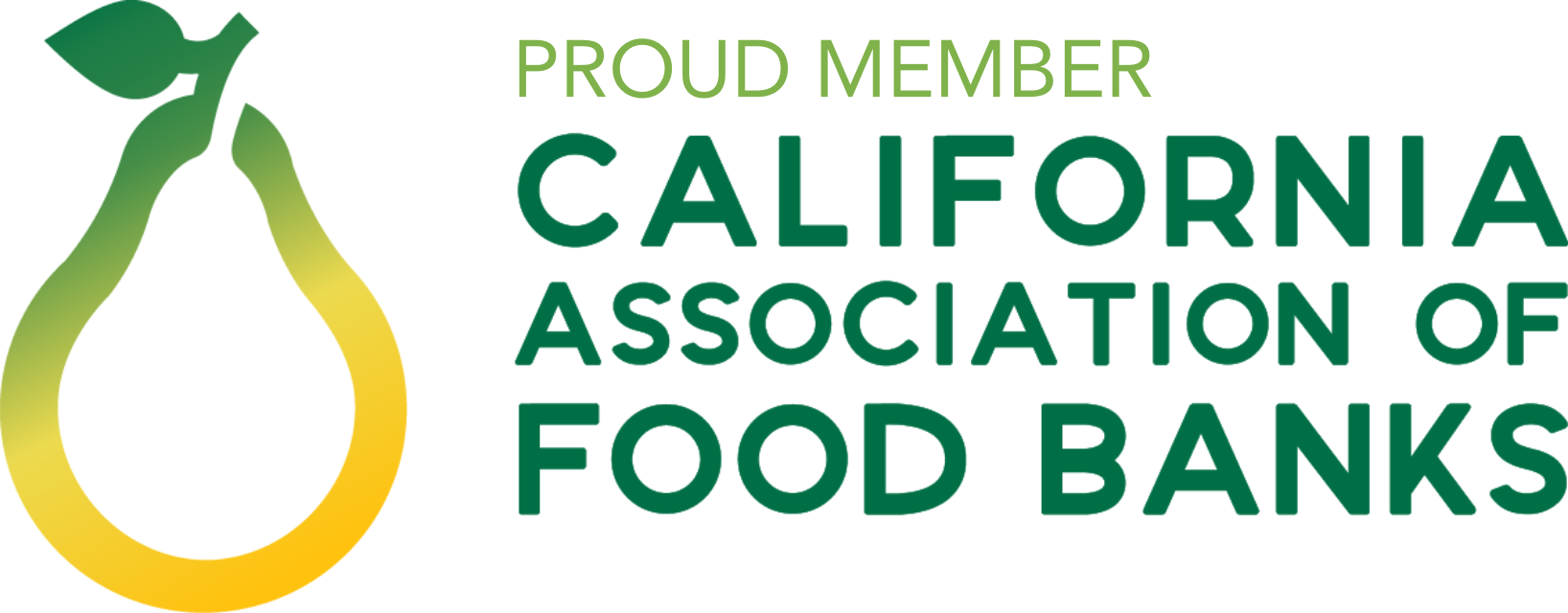Our Mission
Leading the fight to end hunger, in partnership with our community and in service of our neighbors in need.
CEO's Message
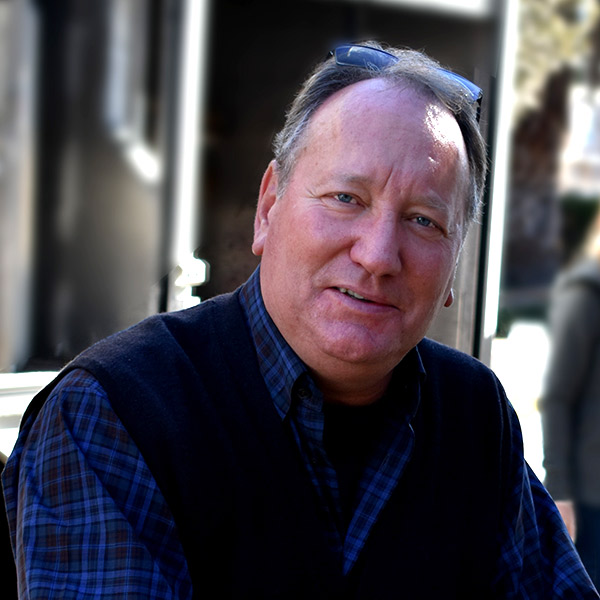
A Reflection:
Redefining Leadership in the Fight to End Hunger
As I reflect on this past year, the word that comes to mind is change. As we reorient ourselves in the “post-pandemic” era, I am immensely grateful for the support we’ve received and the impact we’ve made. It is with your support that we feel more confident than ever that we can serve the needs of our community day-in, day-out – even as those needs change and evolve.
This last year, our clients’ needs certainly increased. As our neighbors struggled to recover from long-term effects of the pandemic – only to face rising inflation and high food costs at their local stores – your support enabled us to adapt quickly to serve record-high numbers of people who needed food assistance. New faces appeared in our long lines. Because of you, we were able to serve over 258,000 clients per month on average in Contra Costa and Solano Counties – approximately 1 in 6 of our neighbors, last year. Since then, the need has only risen, and your support is more critical than ever.
We learned that there were critical gaps in our community safety net that we needed to address. That is why in 2022, we pushed forth our Three-year Strategic Plan, a roadmap that addresses these gaps with empowered partnerships, nutritious food that results in better health outcomes and improved data that can help us learn and best serve our community.
To ensure the long-term health and strength of our communities, there are significant steps we need to take, and the work has already begun. As we compiled learnings, it became clear that the needs of our neighbors are nuanced – from needing culturally-relevant food to having more access to agencies closer to home. That’s why, as of today, we’ve successfully partnered with over 260 agencies to better serve our communities, and are in collaborations with local farms that are led by women and BIPOC to serve diverse foods (see page 22 to learn how we’re forming partnerships).
There is still much more work to be done – and change can’t wait. Looking ahead, I am excited to partner with all of you, and our community, to continue executing our strategic plan. I am excited to redefine what it means to lead the fight to end hunger.
For this opportunity I thank YOU – our family of donors, sponsors, volunteers and partners who make serving our neighbors possible every single day. We are and will always be stronger together.
In partnership,

Joel Sjostrom
President and CEO
CHange Starts with Access to Nutrition
This means nice fresh food for me. Otherwise I might not have it.
- Mary,
Community Produce Program Client
Our Roadmap to a
Healthier Community
Our Three-Year Strategic Plan
Empowering Our Agencies
Helping our nonprofit agency partners distribute even more food, and expanding our community partnerships to fill the gaps.
Improving Health Outcomes
Targeted programming for vulnerable populations using education, advocacy and nutritious food.
Enhancing Data and Technology
Improving service to our neighbors with better information gathering, reporting and analysis.
The Critical Work Has Already Begun
Because Change Can't Wait

Fighting Hunger Together
34 Million Pounds
of food distributed
258,000 People
served every month
227 Direct Distribution Sites
provided fresh foods and pantry staples to our neighbors
97 cents of every dollar
went towards feeding the community
60% of the food we distribute
was fresh produce, proteins and dairy
1 in 6 community members
served every month
260+ partner agencies
6,700 volunteers
Watch our IMpact in Action
Improving Access
Launched last year, our Find Food Map is making it easier for neighbors to find the food they need at the times and places that work best for them.
The map is searchable by city, zip code and day of the week. To improve access further, it’s available in English or Spanish – with more languages to come.
50,500+ people used the map in its first year
4,600+ people use the map each month
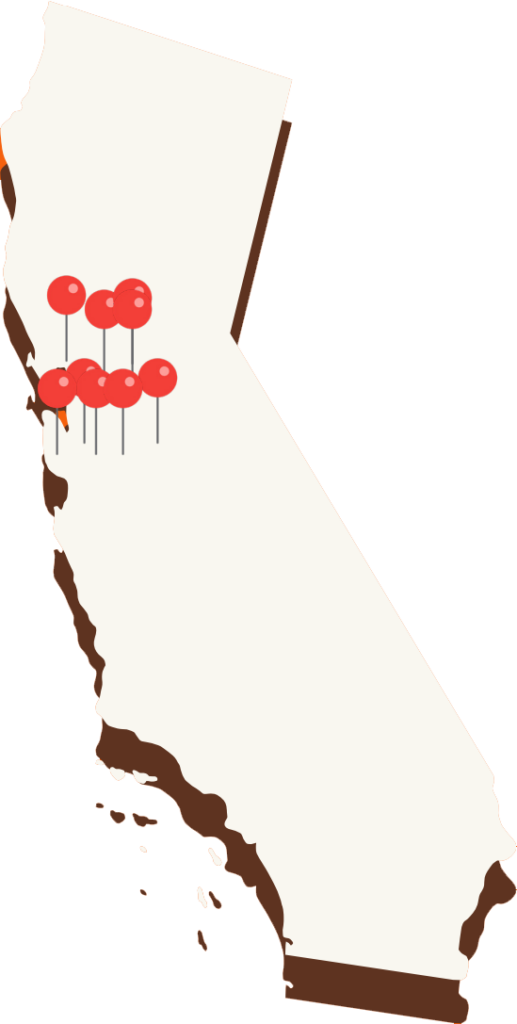
Empowering Agencies:
Leadership in Partnership
Adapting to our community’s needs takes agility – and agility is only possible working alongside our 260+ partners. Our partners, which include a vast network of food pantries, soup kitchens, transitional housing services, child-care centers and more, distributed more than half of the food we provided last year, helping us reach more parts of our community and support more of our neighbors in the ways that work best for them.
When you support us, you also support this critical network. Thanks to your generosity, we awarded $550,000 in agency enhancement grants to 82 agencies last year – our biggest single grant round to date! These funds helped our partners purchase vehicles, equipment and make technological upgrades so they can distribute even more food safely.
Following are a few of their stories.
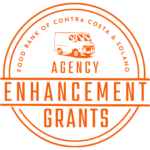
Empowering Dignity and Choice
Agency: Vallejo First Baptist Soup Kitchen
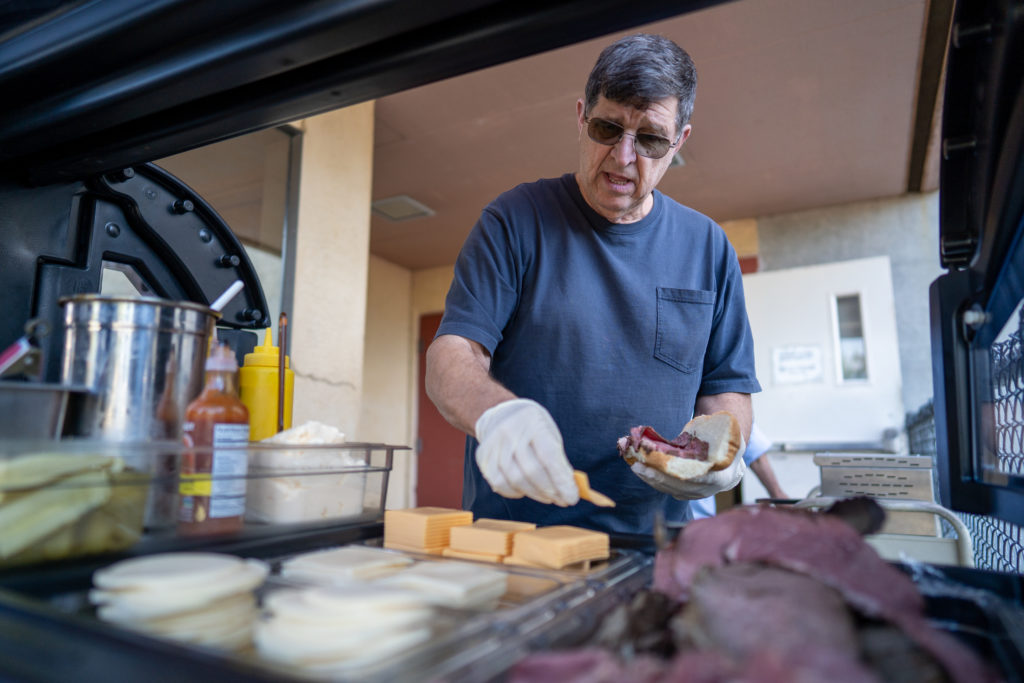
Purchased mobile salad bar and ice machine to increase food choice for unhoused neighbors
“It makes the attitude different…I get feedback from people bragging that ‘Hey I got to make my sandwich the way I wanted. I got to order it. Look at this.’”
–Pastor Mike, Vallejo First Baptist Soup Kitchen

Empowering Efficient Food Transportation
Agency: Lifelong Medical Health Centers
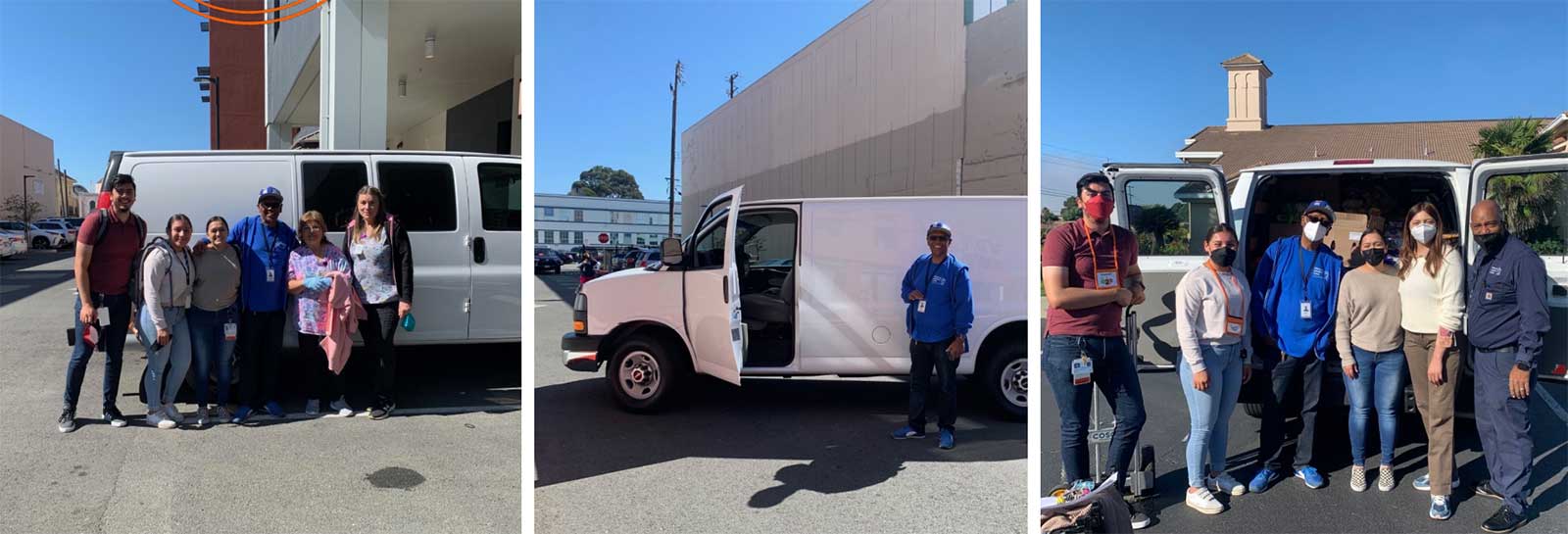
Purchased cargo van to pick up recovered groceries from local stores and food from our warehouse
“Since purchasing our van we’ve had Veggie Giveaway distributions every Wednesday without fail. No cancellations and no disruptions!…We are working on a system to share our van with our other LifeLong Medical Health Centers in Contra Costa County to help them grow their Veggie Giveaways, too.”

Empowering Food Safety
Agency: Delta Christian Community Food Pantry
Purchased van with solar generator system to improve food safety
“It has relieved my mind greatly to have this van just because this summer it was 120 degrees several days. I’m always afraid with meat, poultry, eggs and fish – we’re out too long to not be concerned about that”
-Pastor Karen, Delta Christian Community Food Pantry, Byron/Knightsen/Bethel Island
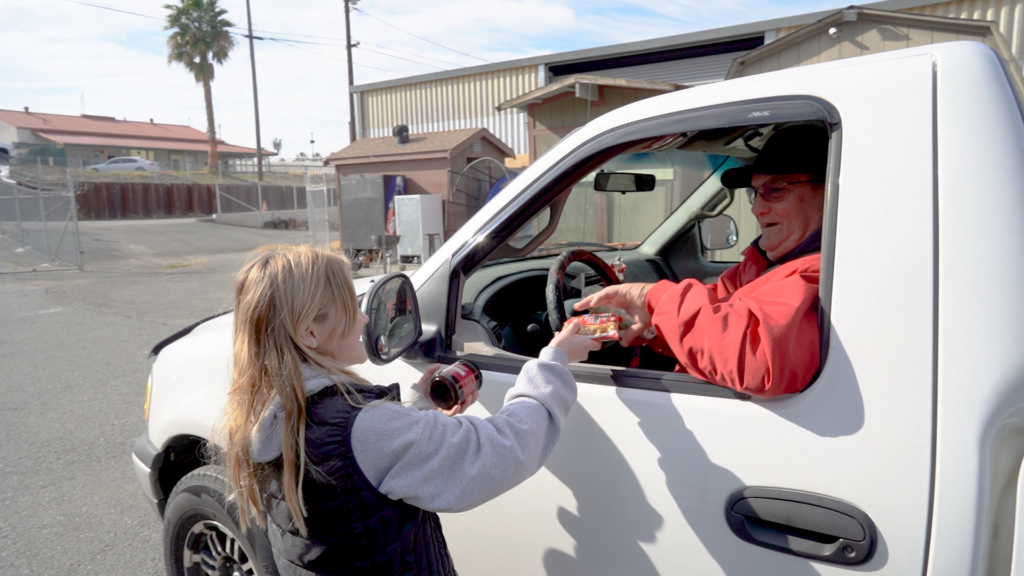

Empowering Dignity and Choice
Agency: Vallejo First Baptist Soup Kitchen

Purchased mobile salad bar and ice machine to increase food choice for unhoused neighbors
“It makes the attitude different…I get feedback from people bragging that ‘Hey I got to make my sandwich the way I wanted. I got to order it. Look at this.’”
–Pastor Mike, Vallejo First Baptist Soup Kitchen

Empowering Efficient Food Transportation
Agency: Lifelong Medical Health Centers

Purchased cargo van to pick up recovered groceries from local stores and food from our warehouse
“Since purchasing our van we’ve had Veggie Giveaway distributions every Wednesday without fail. No cancellations and no disruptions!…We are working on a system to share our van with our other LifeLong Medical Health Centers in Contra Costa County to help them grow their Veggie Giveaways, too.”

Empowering Food Safety
Agency: Delta Christian Community Food Pantry
Purchased van with solar generator system to improve food safety
“It has relieved my mind greatly to have this van just because this summer it was 120 degrees several days. I’m always afraid with meat, poultry, eggs and fish – we’re out too long to not be concerned about that”
-Pastor Karen, Delta Christian Community Food Pantry, Byron/Knightsen/Bethel Island

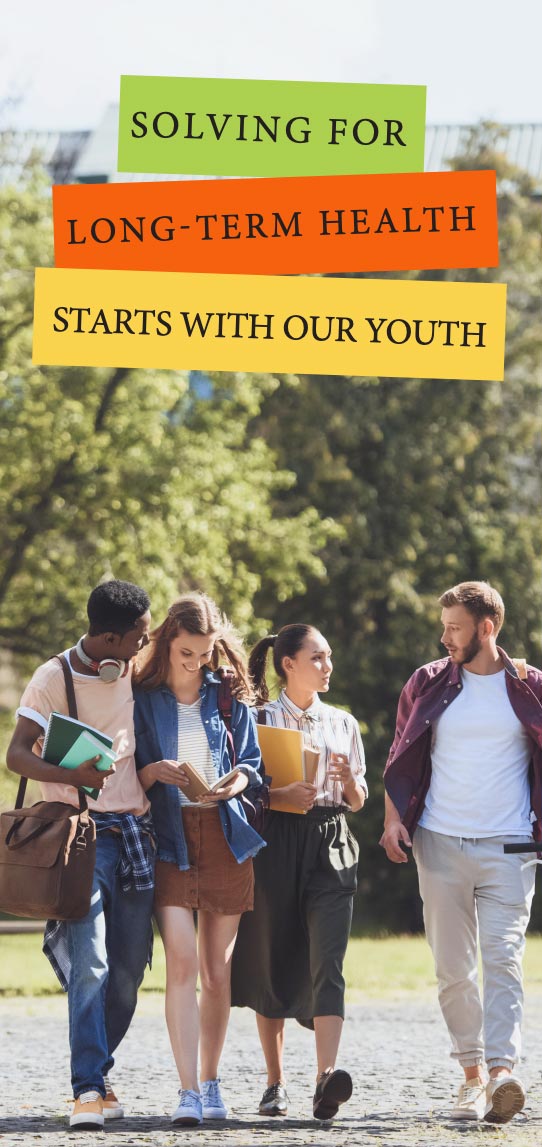
Leading the fight to end hunger goes beyond providing immediate support, it also means generating awareness of the issue and creating a stronger safety net for the long-term health of our community. One key population is our youth – whose ability to learn and grow is dependent on the basic necessities of food.
Currently, 1 in 3 college students struggle with food insecurity. Because this population often suffers in silence, the Food Bank relies on a critical advisor: Community Advocacy Partner (and now Board Member) Jenny Berten. Inspired by her work as a nurse at Saint Mary’s College of California, Jenny focuses her advocacy efforts on removing stigma and improving food security for college students.
Her efforts have already led to systemic changes at Saint Mary’s that are creating new awareness and support for students facing hunger.
“College hunger is not addressed to the degree it could be because students often experience food insecurity in silence. They say, ‘I’ll just live on Top Ramen, it’s okay.’
But we know college students who are food insecure are 43% less likely to graduate than their food-secure peers, and have increased rates of anxiety and depression. Hunger can also affect focus in the classroom and information retention.
Since spring of 2022, Saint Mary’s has used a proven-effective two-question food insecurity screening in the Student Health Center and Counseling Department. If students screen positive, we’ve created a list of community resources, which includes information about our campus food pantry, the Food Bank of Contra Costa and Solano, and CalFresh benefits.
And because we’re screening every student in the clinic, it raises awareness that 1 in 3 college students struggle with food insecurity. It’s creating a conversation where it has not existed before, and that’s the piece I like the most.”

Improving Health Outcomes
A Close Look at Our Menus
To effectively improve health outcomes in some of our most vulnerable communities, first we needed to listen to those we serve. Based on dietary advice and client preference, and with your support, we made the following improvements to our Senior Food Program menus:
2020: Replaced high-fructose and high-salt items with healthier items; added cheese and other dairy products
2021: Added frozen proteins like chicken and ground turkey in every distribution
2022: Included three new seasonal produce items per month; added no-salt seasonings
Supporting Our Seniors:
Karen's Story
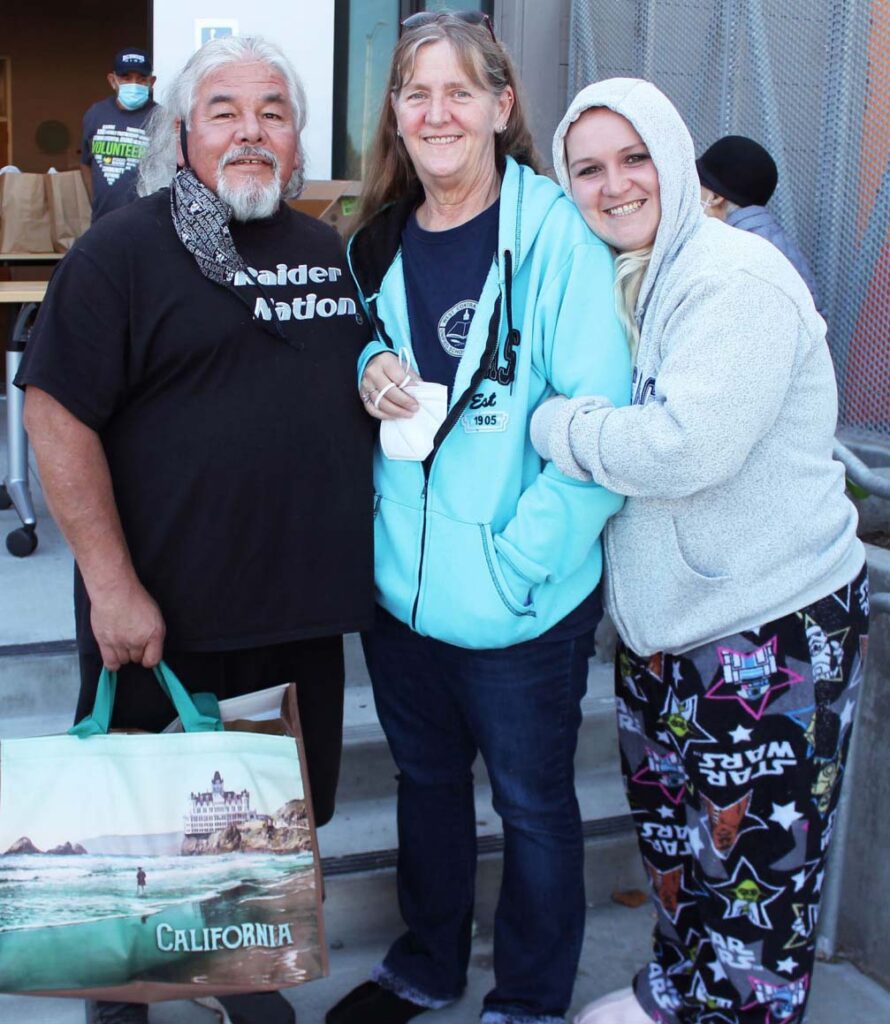
Like many of us, retired teacher Karen has been feeling unwelcome shock every time she checks the prices at her local supermarket. At one local store, a loaf of bread is $5. The money she spends for one gallon of milk used to be enough to buy two.
“The prices in the grocery stores are crazy,” she shared, while picking up groceries from our Senior Food Program in San Pablo with her husband Chris and daughter Melanie. “You can’t afford to eat with prices like that, so this is much appreciated.”
Prices for food were already creeping up when the year began, and since then it’s only gotten more expensive to eat. Add in increases for fuel, housing and other basic necessities and Karen’s family hasn’t been alone in feeling the pinch. Demand for our Senior Food Program has grown by more than 60%, as inflation eats into many seniors’ already-fixed incomes.
Karen and Chris said they’re grateful the Food Bank is there to help them stretch their budget during tough times like these. They particularly appreciate getting eggs, meats and produce – the fresh spinach we’ve added to our menus this past year is a family favorite.
Financials
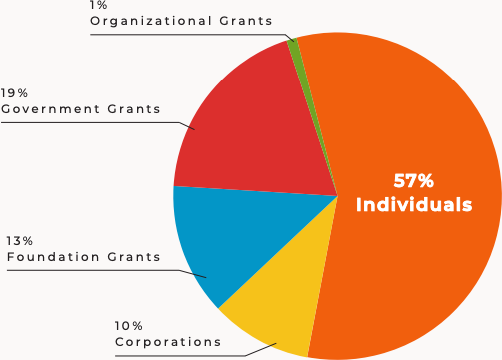
Support & Revenue
| Individuals | $14,727,948 |
| Corporations | $2,518,154 |
| Foundation Grants | $3,285,755 |
| Government Grants | $4,912,699 |
| Organizational Grants | $221,292 |
| Value of Donated Food Received | $88,124,885 |
| Investments and Rental Income | $39,447 |
| Fees and Service Charges | $1,043,710 |
| Discounts Earned and Other | $139,079 |
| TOTAL SUPPORT AND REVENUE | $115,012,969 |
|---|
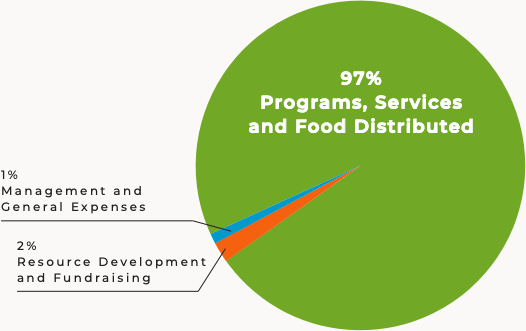
Expenses
| Programs, Services and Food Distributed | $110,154,957 |
| Resource Development and Fundraising | $2,596,729 |
| Management and General Expenses | $1,093,412 |
| TOTAL EXPENSES | $113,845,098 |
|---|

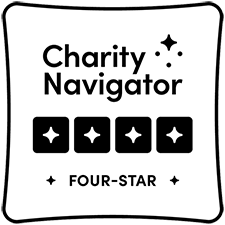
*Revenue pie chart does not include Value of Donated Food Received, Investments and Rental Income, Fees and Service Charges, and Discounts Earned and Other.
Hard copies of the annual audit are available upon request; digital copies can be accessed at foodbankccs.org/financials. Every effort has been made to ensure the completeness and accuracy of the information contained in this report based on our Feeding America service area. Please contact Brian Morrow at bmorrow@foodbankccs.org with any comments/questions.
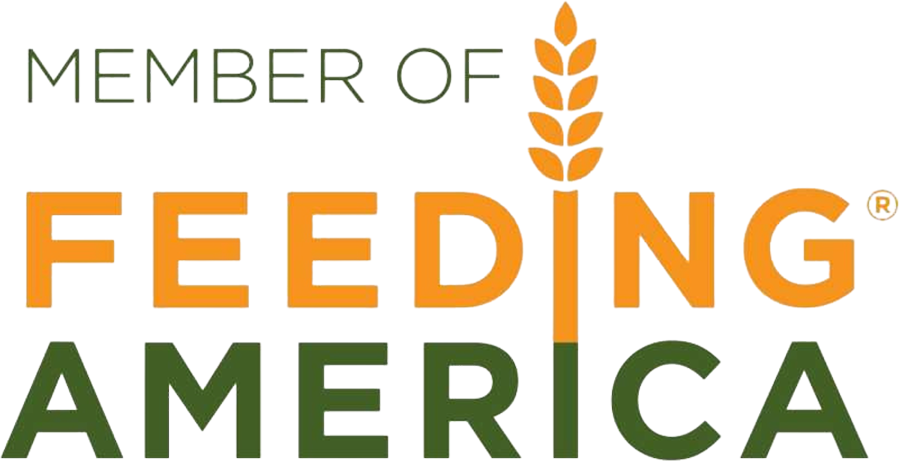
BOARD of
DIRECTORS
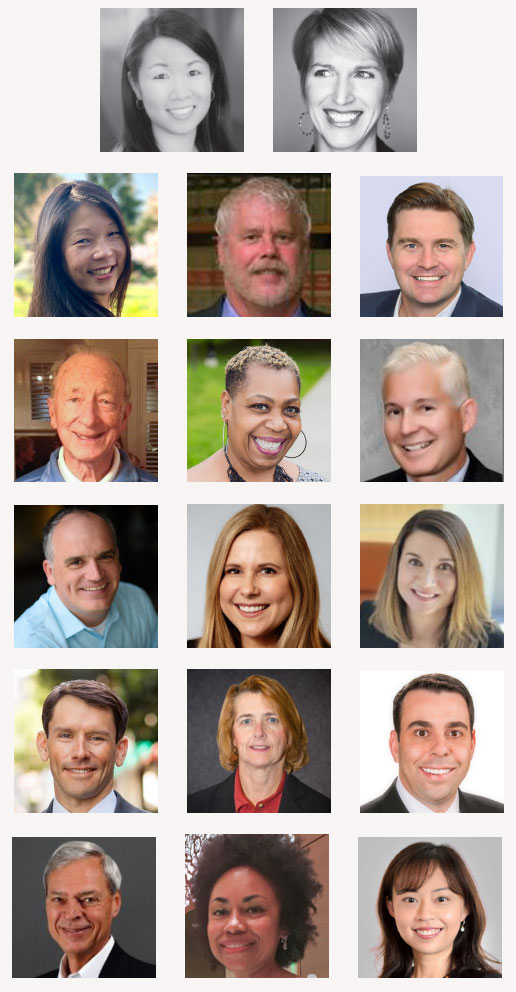
Chair: Jill Steele (2020)
Senior Vice President, Corporate Strategy, Prophet
Vice Chair: Laura Moran (2016)
Retired, Partner, Prophet
Jenny Berten (2022)
College Health Nurse, Saint Mary’s College of California
Dan Birkhaeuser (2022)
Partner, Bramson, Plutzik, Mahler & Birkhaeuser, LLP
Bill Burke (2022)
Vice President, Comerica Bank
Tom Chowaniec (2020)
Retired, Regional Manager, General Mills
Keva Dean (2022)
Eligibility Work Supervisor, Contra Costa County
Rich Golinski (2020)
Partner, Cerity Partners
Mark Gundacker (2019)
Head of People, Chan Zuckerberg Initiative
Melissa Manke Fimbres (2022)
Director, Technical Services, Valero Energy Corporation
Melissa Jones (2018)
Executive Vice President, Chief HR Officer, CSAA Insurance Group
Marc Lewis (2017)
Attorney, Partner/Co-Founder, Lewis & Llewellyn LLP
Teresa Makarewicz (2019)
Retired, Manager CA Business Coordination, Shell Oil Products US
Ryan Misasi (2022)
Executive VP, Retail Banking, Farmers & Merchants Bank of Central CA
Bruce Phelps (2018)
Retired, Consultant, BiotecHPro Consulting, LLC
Tanya Powell (2020)
Chief Financial Officer, Total Safety Supplies and Solutions
Gretchen Tai (2022)
Vice President, Investments, CSAA Insurance Group
The year in parentheses indicates the year that member was elected to the Board. Board members are all independent voting members.
Growing Forward:
An Eye Toward the Future
What’s coming next for the Food Bank
As we move into 2023 and beyond, the Food Bank is eager to redefine what it means to lead the fight to end hunger. Thanks to supporters like you, we’ve been able to quickly pivot and adapt to food crises due to the pandemic and natural disasters. Looking ahead into a post-pandemic world impacted by record-breaking food inflation, we’ll be supporting vulnerable populations who will take years to recover.
Change can’t wait. That’s why we’re eager to take the insights we’ve learned and the partnerships we’ve built – to provide support in the short-term, and innovate on how to solve food insecurity for the long-term.
MOre to COme
- We are sourcing more produce from small, local producers, distributors and farms led by people who are Black, Indigenous or people of color (BIPOC) or women. This will both support their businesses and provide our neighbors with a variety of fruits and vegetables that are culturally relevant to the diverse communities that call Contra Costa and Solano Counties home.
- We will soon launch our 2023 legislative agenda, which will focus on social safety net programs, strengthening food systems and building policy partnerships.
- We are expanding key programs, like Kids Nutrition on Weekends (K-NOW) and Senior Food Program to serve high-need areas and populations.
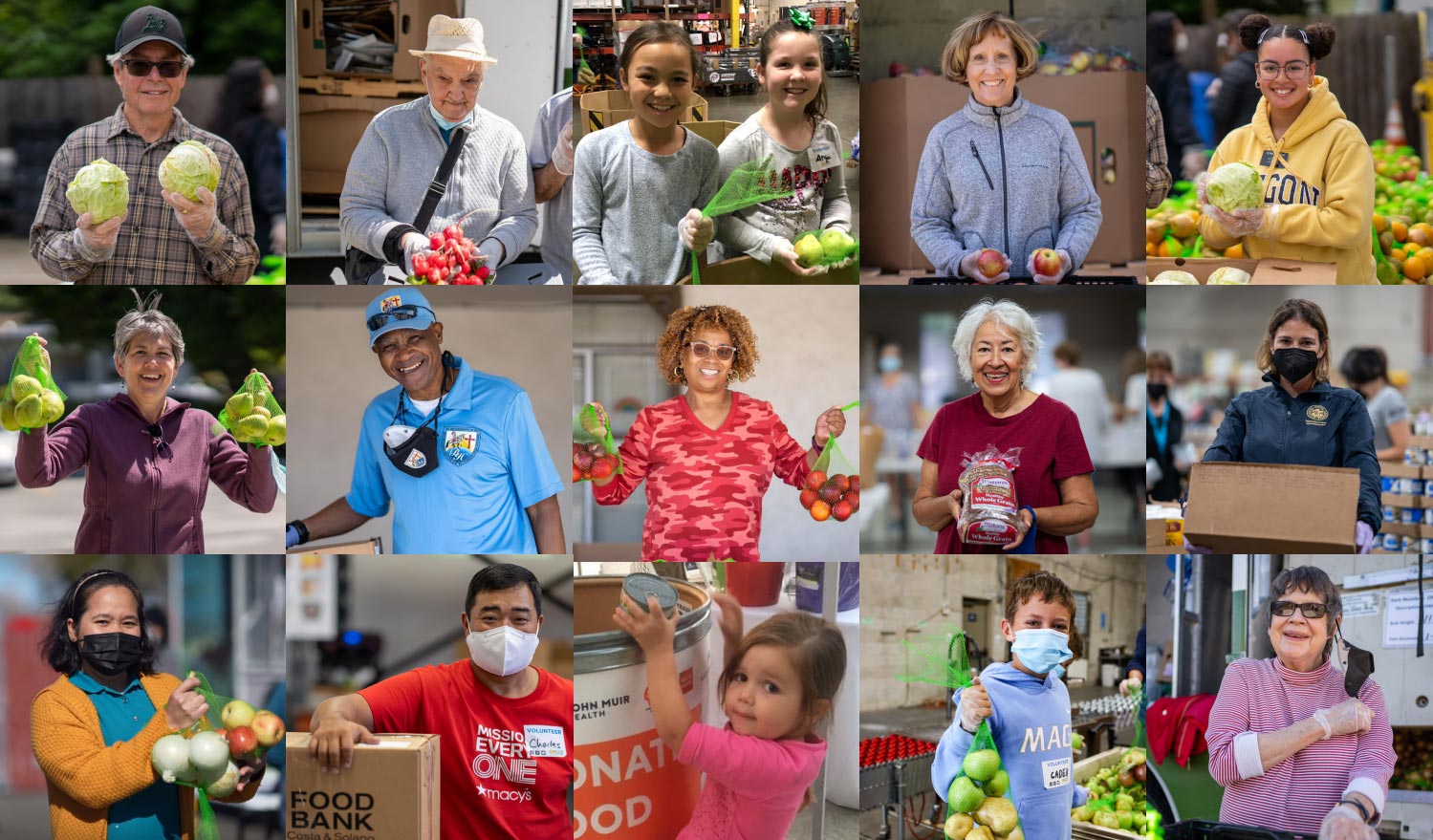
The Impact of our Work is Only Possible Thanks
to the power of our partnerships
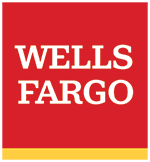
Our work is possible in part thanks to our corporate supporters. If you are interested in being a corporate sponsor of our Annual Report, contact Julia Bermudez at sponsorships@foodbankccs.org.

we are creating a more effective, equitable and inclusive safety net that supports the long-term strength of our community. As we evolve and redefine what it means to solve one of the toughest challenges our community faces – hunger – we are thankful to have you with us.
